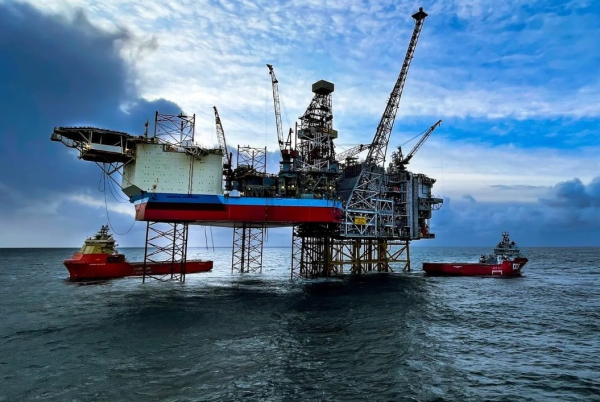

Image source, Getty Images
The European Union looks set to approve a cap on the price of Russian oil after Poland gave its backing.
The plan, which stops countries paying more than $60 (€57; £48) a barrel, needed the agreement of all EU states.
Poland announced its support on Friday after being reassured the cap would be kept at 5% lower than the market rate.
A price cap was put forward by the G7 group of nations in September and aims to stop Moscow profiting from oil exports while avoiding a price spike.
Poland's support for the proposal means the EU can keep to its plan of having a price cap in place by 5 December.
It had been reported that the EU wanted to set the cap at $65-70 but this was rejected by Poland, Lithuania and Estonia as too high.
Warsaw had wanted the value to be as low as possible and had held out while it examined an adjustment mechanism which would keep the cap below the market rate as the price of oil changed.
On Friday, Russian Urals crude was trading at $64 a barrel.
- G7 agrees to impose price cap on Russian oil
- How can the world cope without Russian oil and gas?
The introduction of a cap on Russian oil prices means countries that sign up to the policy will only be permitted to purchase oil and petroleum products transported via sea that are sold at or below the price cap.
G7 finance ministers said in September that their plan to limit the price of Russian crude would reduce Moscow's oil revenues and its ability to "fund its war of aggression".
The price of a barrel has rocketed since Russia launched its invasion of Ukraine in February which has seen prices rise for motorists and industry while generating big profits for oil firms.
Russia denounced the scheme, saying it would not supply those countries which enforced a price cap.

-
G7 agrees to impose price cap on Russian oil
- 2 September

-
How can the world cope without Russian oil and gas?
- 29 September

Source: bbc.com



